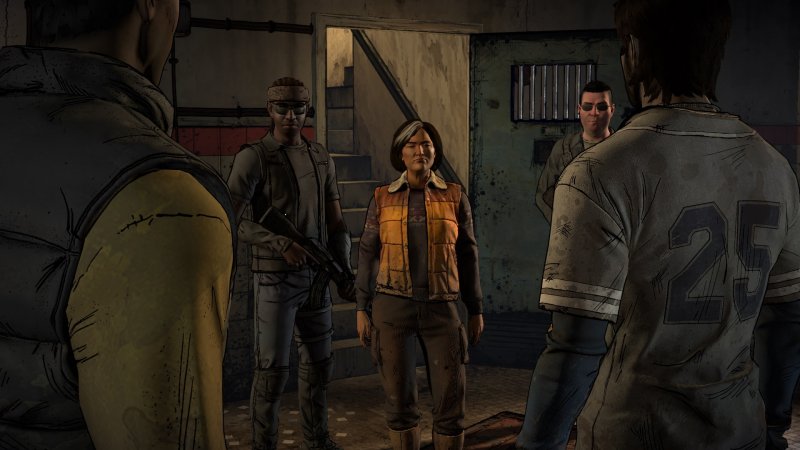You need to open this article with two particularly important notes. First, the review you are reading is about the last two episodes of The Walking Dead: A New Frontier, the fourth and fifth. We have in fact thought to convey in one single paper all the impressions and considerations arising from the long epilogue of the Telltale series so as to be able to advise in the best way the players who are still undecided about the purchase.
Secondly, as happened with all the other reviews of the episodic adventures of the California software house, we carefully avoided any spoiler by flying over the details and information regarding the plot. Being titles so focused on the narrative component, any consideration of characters, scenes and events simply risks ruining your experience.
Without due promises we go into the details of the article passing under examination the two chapters titled Thicker Than Water and From the Gallows: the first is a transition chapter while the second represents the appropriate conclusion of a third season which, concretely, is not never managed to take off.
EPISODE 4: THICKER THAN WATER
The penultimate episode of this third season of The Walking Dead perfectly expresses the concept of transition. This is a chapter that flies away in a moment, completely devoid of memorable moments, but also only scenes that involve the player in some way by forcing him to important or thick choices.
Ninety minutes of long talk of acclimatization, essential to know more deeply some of the characters of outline,in particular Ava, the brazen bodyguard of David, the brother of the protagonist, probably one of the secondary figures better built thanks to his presence in several episodes. And of course to define even better the strange
relationship that keeps glued, but also tragically distant, the group that has come to create during the season. The chapter tries in vain to deepen the morbid bond of the broken couple composed of Tripp and Eleanor where we, playing Javier, act alternately with accomplices, friends, third parties, or “official rulers of the crook”.
In reality, Thicker Than Water never succeeds in going beyond conversations that even obliging us to make the usual choices of attitude (defining moral decisions in this chapter is not really possible), remain superficial in the literal sense of the word: only superficial, not making us never really fond of these secondary characters and making it virtually impossible to make us come even just want to understand their point of view. There are only two exceptions to a chapter that would
otherwise be considered insufficient.First of all an extremely well constructed scene written by Telltale that sees Javier become mentor and advisor, as well as the first witness, of Clementine’s transition from childhood to adolescence, with the crucial event marked by his first menstruation. It is a subject often taboo, not only in video games, which is told here with the due sensitivity and a perfect sense of embarrassment that the writer, a longtime male player, would have actually
tried if he had been in that place at that time having to start that discussion. Clementine is perfect, naive despite her incredible strength and vitality that made her survive for three long seasons despite the difficulties and tragic events that have involved her without ever breaking her.Too bad that this moment really runs out in a moment, slipping away in a few minutes leaving us with the feeling that Telltale wanted to include as a last attempt to give some weight to this third season and not as an actual addition to the story. The second noteworthy element is the ending.
The epilogue of this fourth episode is where all our participations in hundreds of dialogues make sense. It is at the moment when we are faced with a tragic choice, among other things characterized by an unexpected consequence, that finally this fourth chapter takes off thanks to a clever mix of surprise and action that leaves us literally breathless, in front of what seems the imminent end of the fortified city of Richmond.

